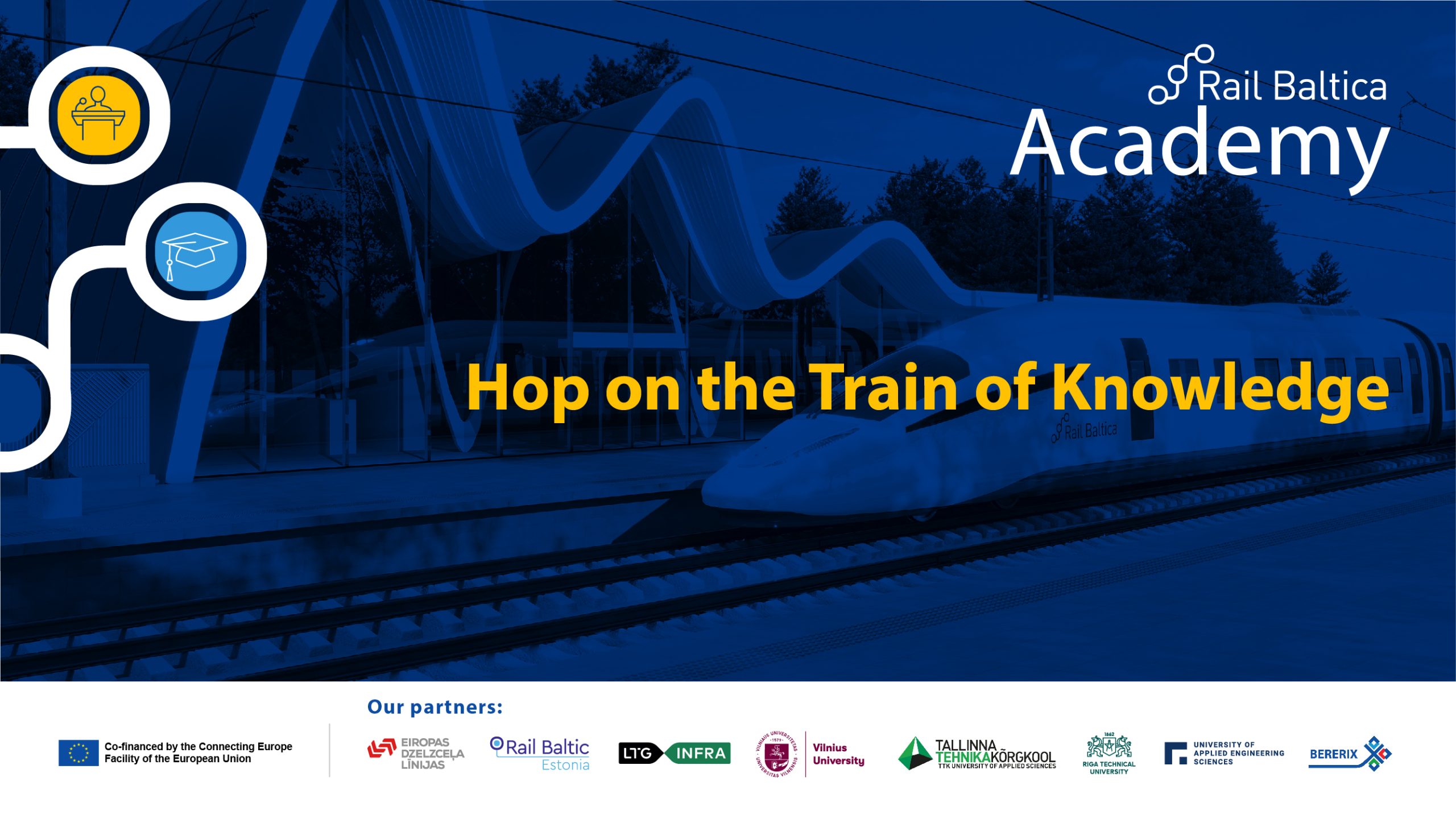Rail Baltica is announcing the return of Rail Baltica Academy for its third year. This global knowledge-sharing platform continues to facilitate the exchange of ideas and expertise by offering a series of public digital lectures, ensuring that valuable insights from Rail Baltica experts reach a broad audience.

Rail Baltica Academy has become a hub for industry professionals, railway enthusiasts, students, and future users of Rail Baltica to gather and delve into the intricate details of one of Europe’s largest and most ambitious infrastructure projects. The initiative has gained widespread recognition for its commitment to fostering dialogue, encouraging collaboration, and disseminating cutting-edge knowledge on various aspects of Rail Baltica.
In collaboration with Riga Technical University, Kaunas University of Applied Engineering Sciences, Vilnius University, TTK University of Applied Sciences in Estonia, Rail Baltica Academy’s spring session will offer ten concise online sessions providing an insight into the integrated approach of project management and engineering to deliver a modern and sustainable railway infrastructure.
“Effective collaboration and knowledge sharing among students specializing in engineering, automation, digitalization, and other relevant fields play a critical role in driving the success of the modern railway. With the Rail Baltica Academy, today’s students have a unique opportunity to discover and learn about a project that will shape the future of railway infrastructure in the Baltics,” said Signe Nigale, Head of Communication Department at RB Rail AS.
During the series of lectures, in the Spring session presented by more than 10 experts session from the Rail Baltica delivery organizations – Rail Baltica joint venture RB Rail AS, the national implementing bodies in each of the Baltic States – LTG Infra (Lithuania), Eiropas Dzelzceļa līnijas (Latvia) and Rail Baltic Estonia (Estonia), and the project’s global partners, participants will have the opportunity to access inside knowledge about different angles of the Rail Baltica project.
The digital lectures will be accessible through Rail Baltica global project social media platforms, ensuring that participants from all corners of the world can engage with the rich knowledge shared by Rail Baltica experts. The lectures will be open to professionals, students, policymakers, and anyone with an interest in the future of transportation and infrastructure. Most of the lectures will be held in English with the possibility to ask questions directly to the expert.
The first online lecture (in English) will take place on Monday, May 22, at 10.00, and in it Dovilė Juškevičienė, Environmental Expert of RB Rail AS, will talk about the role of megaprojects like Rail Baltica in preventing climate change in the lecture The Role of Megaprojects in Tackling Climate Change: Rail Baltica Example.
The second online lecture of the spring session (in English) will take place on Tuesday, May 23, at 14.00. RB Rail AS Innovation and Sustainability Expert Andy Billington will offer an insight into the digitalization and innovation solutions applied in the Rail Baltica project in the lecture Connected Europe, Connected Railways: How Rail Baltica is Leading the Way in Digitalisation.
Information on the full agenda of the spring session is available on the Rail Baltica project’s official website: https://www.railbaltica.org/rail-baltica-academy/. Rail Baltica invites all interested individuals and organizations to mark their calendars and stay tuned for further announcements regarding the Rail Baltica Academy’s third-year lectures.
Rail Baltica Academy is a global knowledge-sharing platform established in 2020 that provides a series of public lectures for STEM students, as well as the general public across the Baltic countries. Over 280 students from 14 educational institutions from the Baltics, Germany, Spain and the Netherlands, participated in the first Rail Baltica Academy. In the previous session, the online lectures gathered over 3000 viewers from 19 different countries.
The previous lectures can be found here.
